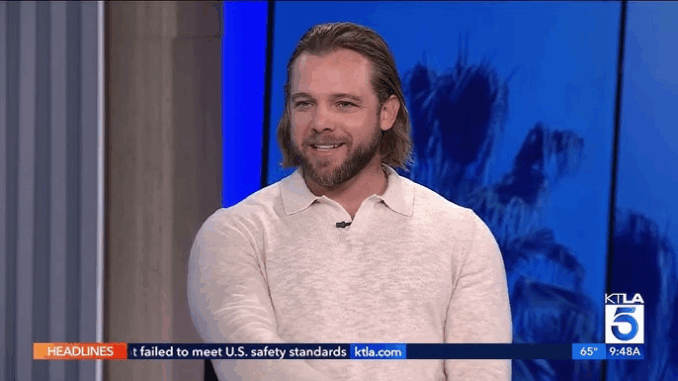
Max Thieriot didn’t come to television just to play a role—he came to redefine what redemption means on-screen. As the co-creator and star of Fire Country, he has taken the archetype of the hero and infused it with raw imperfection, personal trauma, and unwavering honesty. What we get isn’t just a compelling drama—it’s a masterclass in character reinvention.
Let’s explore how Thieriot’s vision has turned Bode Donovan into one of the most emotionally layered leads on TV and why that matters more than ever.
The Rise of the Antihero with a Purpose
In the world of prestige TV, flawed characters have long been the norm—think Walter White, Don Draper, or Tony Soprano. But in network television, heroism is still largely clean-cut and aspirational. That’s what makes Max Thieriot’s creation, Bode Donovan, such a seismic shift.
Thieriot didn’t just create a lead character who is complicated—he created one who is downright difficult to root for at times. Bode is reckless, angry, sometimes manipulative. But he’s also courageous, fiercely loyal, and in constant search of redemption. His complexity invites us to question how we define morality, worth, and second chances.
This isn’t accidental—it’s foundational. And it reflects Thieriot’s commitment to authenticity in every aspect of storytelling.
Bode Donovan: Firefighter, Inmate, Son, Survivor
At the heart of Fire Country is Bode’s emotional and literal journey through fire. Sentenced to prison and placed in the Cal Fire inmate firefighter program, he begins not as a savior, but as someone trying to save himself. And that distinction matters.
Thieriot uses Bode’s circumstances to humanize incarceration and addiction. By showing Bode’s failed relationships, traumatic past, and flawed choices, he doesn’t excuse his behavior—he contextualizes it. In doing so, Thieriot challenges viewers to move past judgment and engage with empathy.
Every fire Bode fights in the forest is a metaphor for the ones he fights internally: shame, guilt, and the desperate desire to prove he’s more than his worst mistake.
The Father-Son Struggle at the Core of the Drama

One of the most emotionally resonant themes in Fire Country is the fractured relationship between Bode and his father, Vince. Played powerfully by Billy Burke, Vince is a man of principle who has trouble forgiving. Their dynamic is fraught with tension—professional, personal, and emotional.
Thieriot ensures that this tension isn’t just surface conflict. It’s a generational trauma passed down through silence and unmet expectations. In many ways, the series becomes a meditation on how men, especially fathers and sons, process grief, anger, and connection.
Through these intimate moments—often punctuated by confrontation, retreat, and rare vulnerability—Thieriot reshapes the “strong, silent man” trope into something richer and more real.
Thieriot’s Writing Gives Voice to the Voiceless
Bode’s story may be personal, but his experience mirrors countless individuals who struggle to rebuild their lives after incarceration. Through Thieriot’s scripts, we hear voices rarely given prominence on prime-time TV: those of the working class, the marginalized, and the forgotten.
Fire Country doesn’t glamorize prison firefighting—it portrays the risks, injustice, and sacrifices. But it also offers space for growth and self-worth, challenging the belief that people are forever defined by their past. This is where Thieriot’s writing shines—not in plot twists, but in moments of quiet dignity.
Redemption Isn’t Linear—And That’s the Point
Many TV characters are given “redemption arcs,” but few are as nonlinear and hard-earned as Bode’s. He messes up. He regresses. He self-sabotages. But he also learns, apologizes, and tries again. Thieriot allows Bode to be a work in progress—a mirror to how actual redemption unfolds in life.
In doing so, he invites audiences to stay present with discomfort and uncertainty. And that’s revolutionary, especially in a format known for wrapping stories in neat conclusions.
Conclusion: A New Blueprint for Heroism
Max Thieriot’s portrayal of Bode Donovan has expanded what a hero can be. In Fire Country, heroism isn’t found in perfection—it’s found in persistence. And through his fearless storytelling, Thieriot is redefining not only what network drama can achieve but who gets to be at the center of it.
This isn’t just performance. It’s legacy-building.
